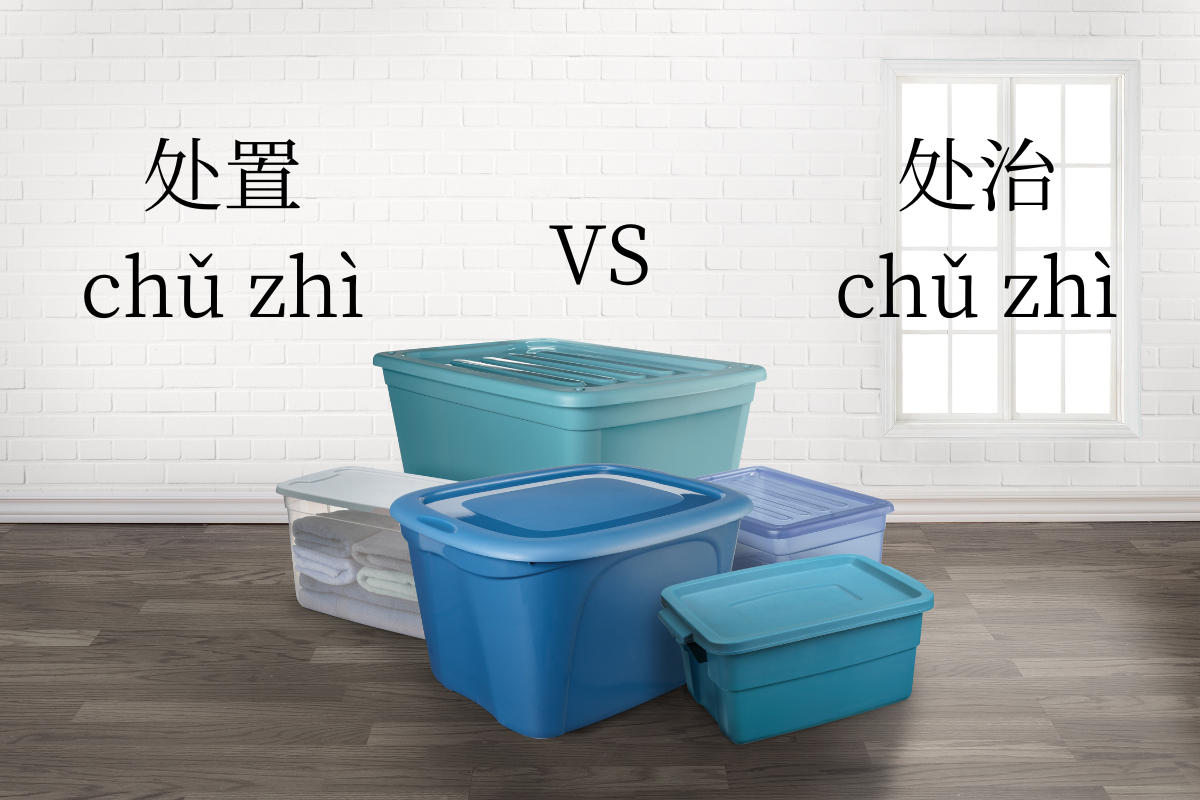HSK Words: 处置 (chǔ zhì) VS 处治 (chǔ zhì)
In Chinese language learning, the HSK words 处置 (chǔ zhì) and 处治 (chǔ zhì) are often confused by learners. While both words can be used in similar contexts, their meanings and usage have subtle differences. In this article, we will explore the nuances between these two words by examining their definitions and examples of usage.

处置 (chǔ zhì) typically implies the management or handling of something, often in a formal or official manner. It can be used in a variety of contexts, such as dealing with property, handling legal matters, or managing resources.
Examples:
- This company is responsible for disposing of used materials.
该公司负责处置废旧物资。
gāi gōng sī fù zé chǔ zhì fèi jiù wù zī。 - The police have begun handling this traffic accident.
警方已开始处置这起交通事故。
jǐng fāng yǐ kāi shǐ chǔ zhì zhè qǐ jiāo tōng shì gù。 - The government needs to take measures to dispose of the mountains of accumulated garbage.
政府需要采取措施来处置堆积如山的垃圾。
zhèng fǔ xū yào cǎi qǔ cuò shī lái chǔ zhì duī jī rú shān de lā jī。
处治 (chǔ zhì), on the other hand, has a more specific meaning related to punishing or disciplining someone. It implies the application of sanctions or punishment in response to wrongdoing or misconduct.
Examples:
- The student was disciplined for breaking the school rules.
该学生因违反校规被处治。
gāi xué shēng yīn wéi fǎn xiào guī bèi chǔ zhì。 - The court decided to discipline the criminal suspect.
法院决定对犯罪嫌疑人进行处治。
fǎ yuàn jué dìng duì fàn zuì xián yí rén jìn xíng chǔ zhì。 - The organization was disciplined by the government for suspected illegal activities.
该组织因涉嫌违法活动被政府处治。
gāi zǔ zhī yīn shè xián wéi fǎ huó dòng bèi zhèng fǔ chǔ zhì。
In summary, 处置 (chǔ zhì) and 处治 (chǔ zhì) are two distinct words in Chinese. 处置(chǔ zhì) implies the management or handling of something, often in a formal or official manner, while 处治 (chǔ zhì)implies the application of punishment or discipline in response to wrongdoing or misconduct. Understanding the specific meanings of these words and their appropriate usage can enhance your Chinese language comprehension and communication skills.
Quiz: Please consider whether to use 处置 (chǔ zhì) VS 处治 (chǔ zhì) in the following sentences.
- 使用安全的方法______医疗废物。
shǐ yòng ān quán de fāng fǎ ______ yī liáo fèi wù。 - 怎么______这些不听话的山羊呢?
zěn me ______ zhè xiē bù tīng huà de shān yáng ne? - 怎么______这些小偷呢?
zěn me ______ zhè xiē xiǎo tōu ne?
Answers:
- 处置 (chǔ zhì)
- 处置 (chǔ zhì)
- 处治 (chǔ zhì)